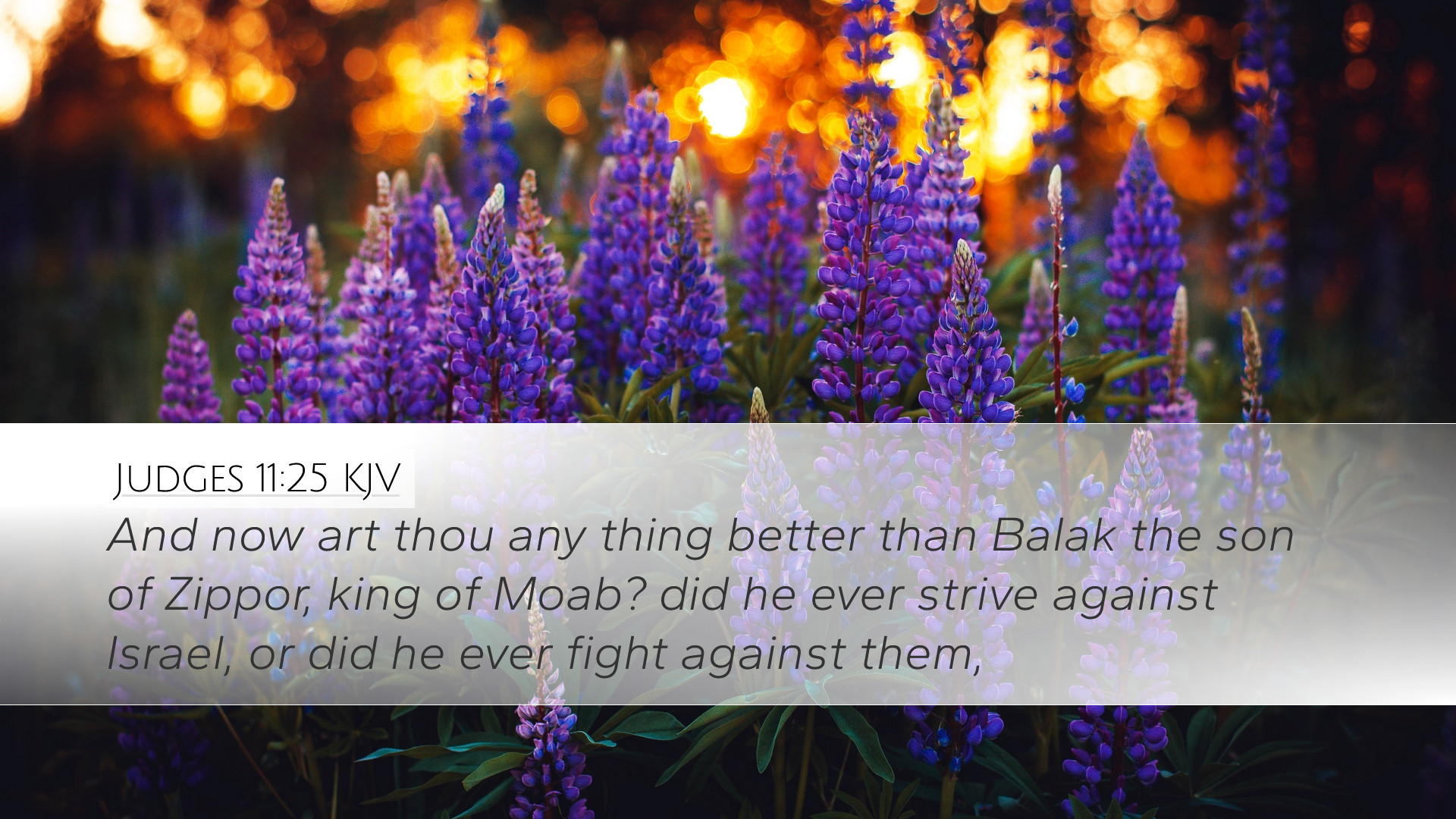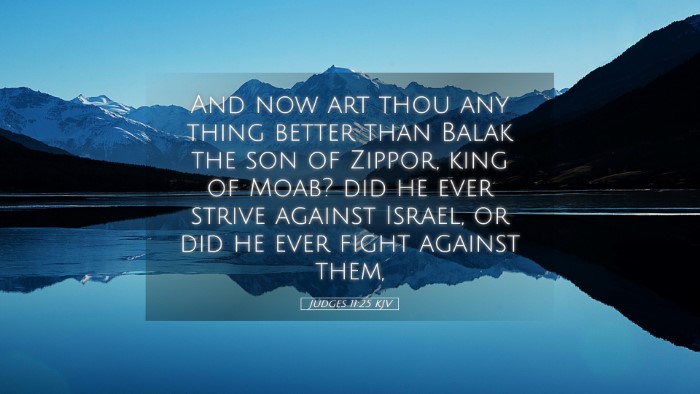Commentary on Judges 11:25
Judges 11:25 states: "And now are you any better than Balak the son of Zippor, king of Moab? Did he ever strive against Israel, or did he ever fight against them?"
Contextual Background
This verse is part of the narrative regarding Jephthah, a judge of Israel, who was called to lead Israel against the Ammonites. The context involves a diplomatic exchange where Jephthah is addressing the Ammonite king, challenging his claims against Israel.
The Significance of the Historical Allusion
In this verse, Jephthah draws a comparison to Balak, the Moabite king mentioned in the earlier books of the Bible (Numbers 22-24). Balak sought to curse Israel but ultimately failed due to God's protection over His people. By invoking Balak’s name, Jephthah suggests that like Balak, the Ammonites have no righteous basis for their aggression against Israel. This serves both as a reminder of Israel's divine favor and as a rhetorical strategy to dissuade the Ammonite king.
Insights from Matthew Henry
Matthew Henry emphasizes the faithfulness of God in preserving Israel against its enemies. He notes that Jephthah's recollection of Balak serves as a profound illustration of how past enemies have failed to challenge Israel due to divine intervention. Henry argues that Jephthah's challenge highlights the absurdity of the Ammonites' hostility, implying that they should reconsider their position.
Albert Barnes' Perspective
Albert Barnes comments on the rhetorical effectiveness of Jephthah’s argument. He points out that Jephthah was not merely seeking to undermine the Ammonites but also to invoke a sense of historical memory. By referencing Balak, he reminds both his audience and the Ammonites of the futility of fighting against a nation blessed by God. Barnes also notes that the verse serves to articulate the theme of divine providence—an undercurrent throughout the Book of Judges.
Adam Clarke's Exegesis
Adam Clarke delves into the cultural implications of Jephthah's reference to Balak. He elucidates that Balak’s efforts to curse Israel were met with God’s omnipotence; thus, any attempt from the Ammonites to harm Israel would echo Balak’s ultimately useless endeavors. Clarke raises the notion that human aggression is often met with divine opposition, thereby reinforcing the sacred narrative of Israel’s journey through adversities.
Theological Implications
The theological implications of Judges 11:25 are manifold. On one hand, it illustrates God's sovereign protection over His people, serving as an encouragement to contemporary believers that God remains active and faithful amidst trials. On the other hand, it reflects on the moral responsibility of nations and individuals, questioning the justifications for conflict and the outcomes of pride and aggression.
Application for Modern Readers
This verse serves as a compelling study for pastors and theologians, encouraging a deep dive into the nature of conflict from a biblical perspective. Pastors can use this narrative as a teaching tool about reliance on divine providence rather than human strength alone. Additionally, it instills a sense of historical reflection for students and scholars, urging them to consider how history informs current geopolitical tensions and conflicts.
Conclusion
Judges 11:25, rich in historical and theological significance, challenges us to reflect on how we engage with spiritual adversaries and personal conflicts. It underscores the necessity of understanding our identity in relation to God’s promises and the futility of opposing His will. In light of public domain commentators like Henry, Barnes, and Clarke, it becomes apparent that Scripture is not merely a historical text but a living document that continues to communicate truths applicable to our lives today.


